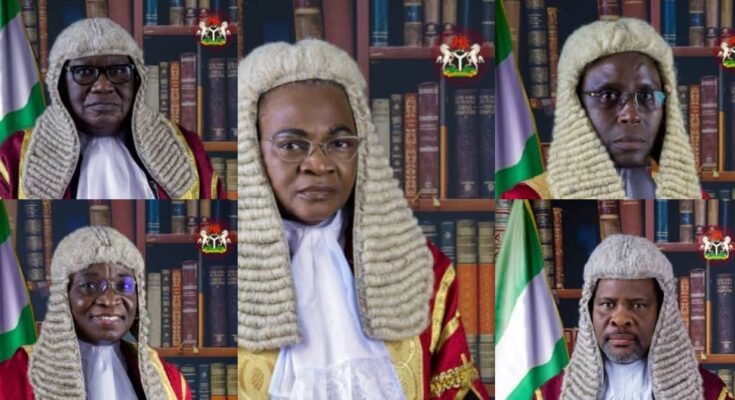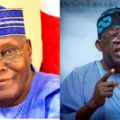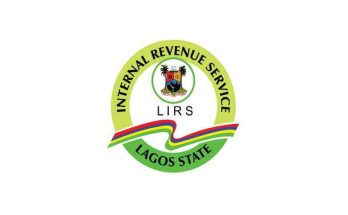By Oluwayanmife Ayobami
After a lengthy five-month legal battle, the Presidential Election Petition Court (Tribunal) is all set to announce its decision today, which will have a significant impact on the future of three prominent politicians: President Bola Tinubu, former Vice President Atiku Abubakar, and former Anambra State Governor Peter Obi.
These three high-profile candidates were the main contenders in the presidential race held on February 25, 2023.
Tinubu represented the All Progressives Congress (APC), Atiku ran for the Peoples Democratic Party (PDP), and Obi was the candidate for the Labour Party (LP).
Atiku (PDP) and Obi (LP) have presented their arguments in court, seeking to overturn Tinubu’s election win and, in different scenarios, either declare Atiku as the victor or call for a new election.
Additionally, the Allied Peoples Movement (APM) filed a separate petition, claiming that the replacement of Masari as the initial APC Vice-Presidential candidate made Tinubu’s candidacy invalid according to constitutional rules.
In response to these petitions, Tinubu, the APC, and the Independent National Electoral Commission (INEC) have urged the court to dismiss the challenges and uphold Tinubu’s election.
The fate of these candidates now rests in the hands of five justices on the Presidential Election Petition Court panel:
Justice Stephen Adah
Justice Stephen Adah is a distinguished Nigerian lawyer and jurist born on June 13, 1957, in Dekina Local Government Area of Kogi State. He has dedicated his life to the pursuit of justice and legal matters. Raised by his parents, Mr. and Mrs. Adah, he was instilled with a commitment to education and the pursuit of legal knowledge.
His legal career began immediately after university graduation. He started as a practicing lawyer and steadily rose through the ranks, eventually becoming the presiding Justice of the Asaba Division of the Court of Appeal.
In November 2012, Justice Stephen Adah assumed the role of an Appeal Court judge. Prior to that, he served as a Federal High Court judge for over 14 years, making significant contributions to the Nigerian legal system. He was part of a panel that allowed Obi and Atiku to serve their petitions to Tinubu through substituted means.
Throughout his career, he has shown a strong dedication to upholding justice and the rule of law, earning respect within the legal community.
Justice Haruna Tsammani
Justice Haruna Tsammani is a highly respected Nigerian jurist who has made significant contributions to the country’s legal system. Born in 1959 in Gombe State, Nigeria, he received his early education in Gombe and went on to earn a Bachelor of Laws degree from Bayero University in Kano in 1982. He later obtained a Master of Laws degree from Ahmadu Bello University in Zaria.
Justice Tsammani began his legal career in 1983 as a Pupil State Counsel in Bauchi State’s Ministry of Justice and later served as the Director of Public Prosecutions in Gombe State. In 1999, he became a Judge of the High Court of Gombe State. In 2011, he was appointed as a Justice of the Court of Appeal, and in 2016, he became a Justice of the Supreme Court of Nigeria. He is the longest-serving justice on the panel and has handled significant cases, including affirming Governor Yahaya Bello’s second term election and rulings on Value Added Tax (VAT) collection.
Throughout his career, Justice Tsammani has been a strong advocate for the rule of law and judicial independence. He has actively supported legal reform in Nigeria and is a member of professional organizations such as the Nigerian Bar Association and the International Bar Association. In addition to his judicial work, he has contributed to the Gombe State University as a member of its Board of Trustees. Justice Tsammani’s dedication to justice and fairness continues to shape Nigeria’s legal landscape.
Justice Abba Mohammed
Justice Abba Mohammed, born on February 19, 1961, and from Kano State, Nigeria, is a distinguished legal figure with a significant career in the country’s judiciary. He embarked on his academic journey by obtaining an LL.B degree from the Institute of Administration, Ahmadu Bello University, Zaria, in 1984. Subsequently, in 1985, he pursued his BL Certificate at the Nigerian Law School in Lagos.
Justice Mohammed’s career took a noteworthy turn when he was appointed as a judge of the Federal Capital Territory (FCT) High Court in 2010. Over the course of nearly a decade, he demonstrated his expertise and dedication in the field of law, handling a wide range of cases.
Recognizing his exceptional contributions, Justice Mohammed’s career reached new heights when he was promoted to the Court of Appeal on June 28, 2021. One of his significant roles was as the Chairman of the Nasarawa State Governorship Election Tribunal in 2019, where he upheld the rule of law by dismissing a petition for lacking merit. His commitment to justice and legal acumen continue to make him a respected figure in Nigeria’s legal community.
Justice Monsurat Bolaji-Yusuf
Justice Monsurat Bolaji-Yusuf, born on August 7, 1959, in Oyo State, is a distinguished legal figure in Nigeria. As the only female member of the five-person panel of the court, she has left an indelible mark on the country’s legal landscape.
Her academic journey led her to earn an LL.B degree from Obafemi Awolowo University, Ile-Ife, in 1983, followed by her BL certificate from the Nigerian Law School.
Justice Bolaji-Yusuf’s career commenced with her appointment as a Judge of the High Court of Oyo State on January 30, 1997. Her dedication and expertise in the legal field eventually led to her elevation to the Court of Appeal on March 24, 2014.
Throughout her career, she has been involved in pivotal cases, including one where she invalidated actions related to the impeachment of former Governor Rashidi Ladoja in Oyo State. Her ruling played a crucial role in the subsequent Supreme Court judgment that nullified the impeachment process, ultimately reinstating Ladoja.
Furthermore, Justice Bolaji-Yusuf delivered the lead judgment affirming Governor Godwin Obaseki’s first-term election and played a significant role in determining the authentic candidates for the 2023 elections. Her contributions to the Nigerian legal system have earned her respect and recognition within.
Justice Moses Ugo
Justice Moses Ugo, born in 1966 and hailing from Bayelsa State, Nigeria, is a prominent legal figure in the country. With a career that spans several years, Justice Ugo has made significant contributions to the Nigerian judiciary system. He began his legal journey as a High Court judge in Bayelsa State, displaying a strong commitment to upholding the law. The youngest member of the panel and hails from Bayelsa State.
In 2011, Justice Ugo was recognized for his expertise and dedication when he was promoted to the Court of Appeal, a significant milestone in his career. His appointment to this esteemed position underscores his legal acumen and integrity.
Throughout his career, Justice Moses Ugo has worked diligently to ensure the fair and impartial administration of justice. His commitment to upholding the rule of law has earned him respect within the legal community and beyond. As one of the dedicated justices, he has played a vital role in shaping the Nigerian legal landscape.
This anticipated verdict carries immense significance for the political landscape in Nigeria, and the nation is eagerly awaiting the court’s decision. Stay tuned for further updates as this pivotal event unfolds.








